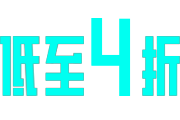
“Cities around the world are currently going through an extraordinary time marked by crises, but also potential for renaissance. Faced with an unprecedented situation during the first outbreak of the Covid-19 pandemic, local government officials were forced to make bold urban experiments to respond more efficiently to people’s needs,” says Carlo Ratti, founding partner of CRA and director of the MIT Senseable City Lab. “Due to its history and social makeup, Prishtina is one of Europe’s most promising ‘living labs’. Our Urban Vision for Manifesta 14 strives to channel the city’s collective energy into accelerating its evolution. We are grateful to Manifesta 14’s director Hedwig Fijen, the Municipality of Prishtina and mayor Përparim Rama for this fruitful collaboration.”
“Commons Sense advocates for the Commons as the key for any positive transformation of the built environment. Working with local associations, students, and citizens, we have been experimenting with a rapid, participatory approach to reclaim the public space. It is the first step of a wider process of urban change and inclusion that we call the Prishtina Model,” says Daniele Belleri, partner at CRA in charge of curatorial projects.
International design and innovation office CRA-Carlo Ratti Associati unveils the result of its Urban Vision and Urban Program for Manifesta 14, the European Nomadic Biennial taking place in Prishtina, Kosovo between July 22 and October 30, 2022. CRA’s project suggests a new methodology to reclaim public space in the city, starting with a series of temporary, open-ended design interventions and leveraging artificial intelligence for urban analysis. CRA’s Urban Vision, titled Commons Sense, casts citizens as key drivers of the evolution of the built environment, fostering feedback loops to effect long-term urban innovation.
▼项目概览,overall view
 收藏此图
收藏此图
During the 20th century, regime changes and political clashes brought considerable turbulence to Kosovo and its cities. As a result, Prishtina currently suffers from a substantial shortage of public space. A large group of disenfranchised local residents are eager to reverse this situation, described by the city’s former mayor Shpend Ahmeti as an ongoing “battle for public space”. In response to this situation, CRA and Manifesta 14 put forward an innovative methodology for inclusive urban innovation, whose initial results will be visible in Prishtina during the biennial. This experimental “open-source urbanism” methodology is based on a series of temporary to permanent interventions developed with a participatory approach based on citizen feedback.

 收藏此图
收藏此图
First, CRA mapped the city and identified a wide range of socially and culturally significant sites. Despite many of them being in compromised conditions, these locations have the potential to trigger an urban renaissance. In this phase, the studio teamed up with MIT Senseable City Lab to use artificial intelligence analysis to form a digital streetscape of the city. The findings were subsequently realized in collaboration with students from the architecture faculty of the University of Prishtina. The related data can be accessed on request by researchers, in the spirit of open-source urbanism. Second, temporary renovations, or Urban Interventions, were set up to demonstrate how the same locations can be reclaimed by and for Prishtina’s citizens. Such work was conducted at a low cost in a short period of time, with a clear speculative orientation. Then, local residents were invited to “vote with their feet”, deciding whether these interventions should be made permanent, or be modified or discarded. Finally, evaluation sessions will be held to facilitate the accelerated evolution of the city.
▼公众参与,public participation
 收藏此图
收藏此图





